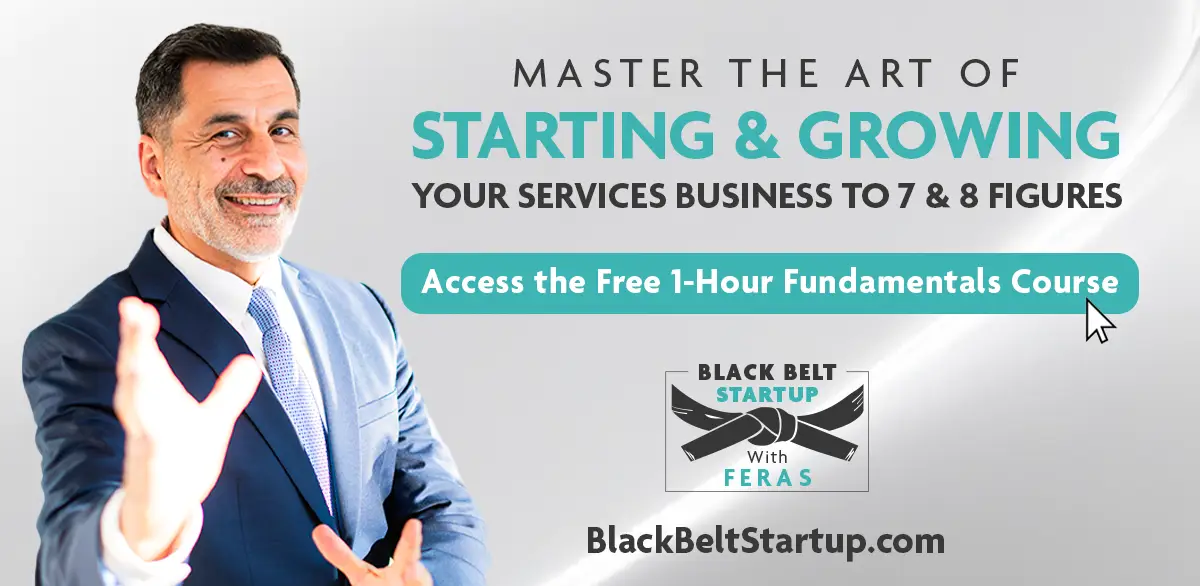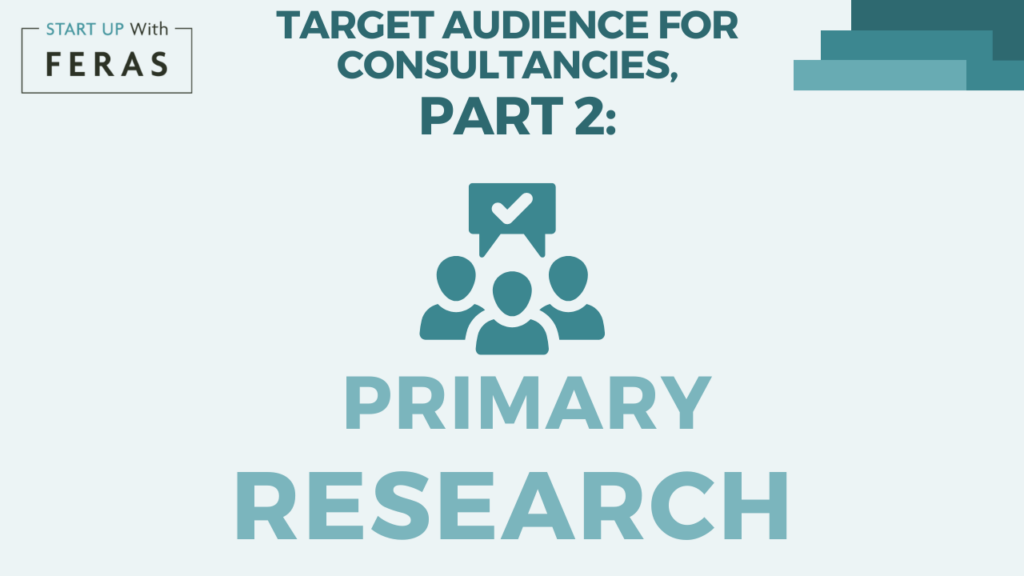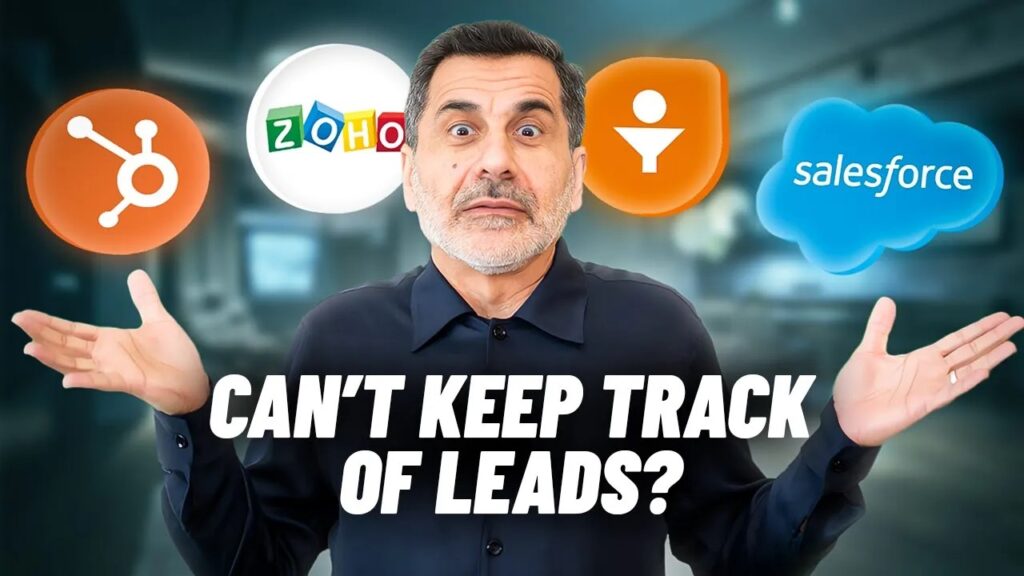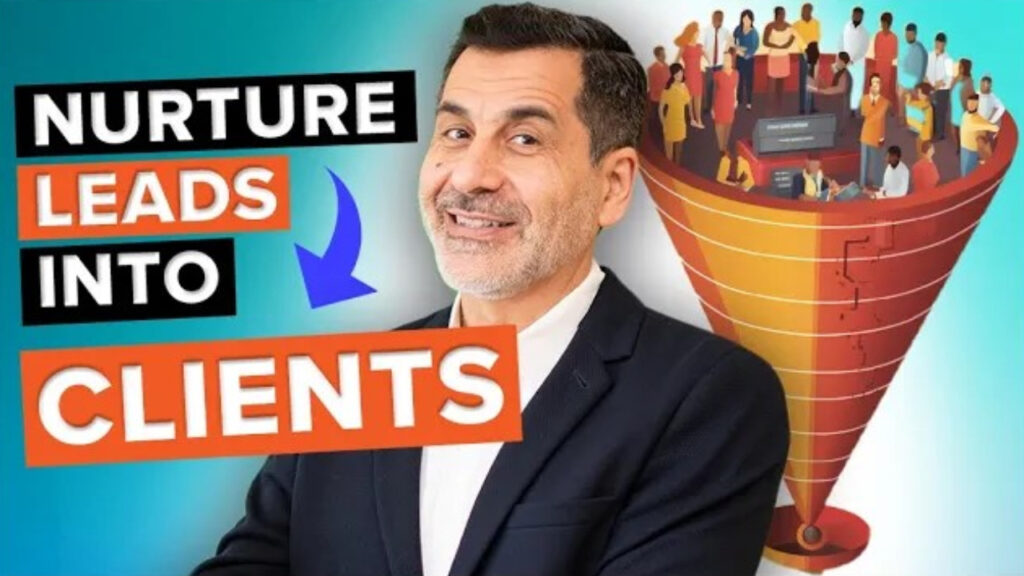Unlock Your Full Potential with Expert Sales Training for Consulting and Services
I learned sales from the ground up and, in the process, built seven businesses that generated 65M+ in revenue. I want to equip you with all the resources you need to move from sales beginner to confidence in every sales interaction.

How to Approach Sales in Your Consulting or Services Business
Sales is both a science and an art. While some founders have a natural people orientation with a knack for persuasion, many do not.
Most consultants and service providers enter the business arena possessing specialized knowledge; they could potentially deliver spectacular results for their clients if they had the opportunity. But they lack the skills to find, nurture, and convert prospective clients into paying clients.
I will start you off with the mechanics — the science side — of consulting sales. We can learn and implement these fundamentals over time. With practice, you can also gradually master the art.
Featured in Sales Strategies & Training
What it Takes to Master Consulting Sales
Learning consulting sales is like learning to ride a bike. Before you hit the mountain trails, you have to teeter on training wheels.
Your first attempts at sales will fall short. Successful entrepreneurs fail fast and often. With persistence, however, comes mastery.
New to Sales? Start here.
I cover sales and other fundamentals for entrepreneurship in Black Belt Startup, our training and coaching membership program. Get started:
What Area of Consulting Sales Do You Need Help In Most?
Sales is a broad category with many facets. How do you get leads? Describing your service to strangers? Distinguishing yourself from the competition? Pricing? Negotiation? Managing leads and opportunities? For a quick start, choose the articles for beginners above, or explore one of the many subjects below.
Building a Sales Process
You cannot scale a business without systems and processes. Build a winning sales process strategically with these core building blocks.
Networking and Events
Never underestimate the power of connection. Learn how to talk about your business anywhere with anyone without being salesy, how to listen to your prospective clients’ pain points, and how to get the most out of conferences and events.
Pricing Your Services
Every service entrepreneur questions their prices at one point or another. Learn to price according to value, choose the right pricing model for your business stage, and enter a new deal confident with your offer.
Building a Sales Team
Cultivating winning sales teams begins with you. Learn when to make your first hire, how to find the best candidates (hint: most aren’t on job listing sites), and how to make sure your new hires get up to speed quickly.
Sales Funnels
Sales funnels consist of structured sales processes that you can follow repeatedly to provide a more seamless experience to your prospective clients. Sales funnels also free up time that you can use to provide more individualized attention to these prospects and close more deals.
Sales Tools
With the dawn of AI and founders starting businesses after facing layoffs, you need all the help you can get. We've created a set of sales tools and assets to help you succeed.
Sales for Side Hustles
If you’re running a side hustle, and want to know what it takes to go full-time, I’ve created a six-month financial runway calculator so you can make sure you have the revenue you need to break free from your 9-to-5.
Developing Your Consulting Sales Strategy
To be successful as a consultant or service entrepreneur in today’s world, you must get good at finding, connecting with, and winning over prospective clients.
Understanding and Serving Your Audience
Some founders jump into business and try a slew of tips and tricks to find clients. This approach is piecemeal at best and won’t lead to long-term consistency.
To be effective, you have to be more strategic. And this strategy begins with your very business idea and business planning. Your approach must include:
- Intimate knowledge of your target audience
- Their needs, desires, aspirations, and pain points
- Their satisfaction or dissatisfaction with other providers
- Common objections
- How they like to be served
- A solid understanding of the market you are competing in
- It’s size
- The number of competitors
- Existing and emerging trends and opportunities
- Value that stands out from the competition
- Your unique sauce
- The skill mix you bring that few others have
- How you will communicate these skills to your audience
You can't win at sales or business without mapping out these aspects of your strategy.
Understanding the Consulting Sales Process
Crafting your own sales process can sound intimidating, but think of it as a series of steps. Your job is to guide your prospective clients through each of these steps:
- Prospecting: Identifying potential customers
- Qualification: Qualifying those leads
- Engagement: Understanding and building rapport with qualified leads
- Presentation: Presenting your product or service to the prospective clients
- Objection Handling: Addressing any objections
- Closing: Closing the deal
- Follow-up: Ensuring the client’s satisfaction
Once you have defined your sales process, you will get a sense for where you need to focus your attention so you can be strategic with each lead. For more, see the Ultimate Guide to Mastering Sales Funnels for Service Businesses and How to Master the Consulting Sales Process: a Step-by-Step Guide for Success.
Key Components of an Effective Sales Strategy
Prospective customers are not widgets to sort through a machine. While members of your target audience will share similarities, each will have a unique blend of challenges and potential objections to working with you.
As you work through the sales process, you will need to identify the client’s specific problems and how you will solve those problems in a cost-effective manner. You are building a relationship, so avoid a cookie-cutter approach.
For more on identifying and addressing a prospective client’s pain points, see Conducting a Market Analysis for Your Business Plan and 3 Things You Must Include in Your Business Plan's Sales & Marketing Section.
Measuring and Optimizing Sales Performance
When you are strategic and follow the stages outlined above, you build a database of leads. But where are they coming from? Which sources seem to give you the best leads and which deliver the duds? How well are you turning prospects into clients?
Continuous improvement comes from data, observation, and analysis. As the saying goes, you can’t manage what you don’t measure. Having the right metrics is a key part of any process, including sales.
For more on the baseline metrics you need to track weekly, monthly, or quarterly, view How to Choose the Best CRM for Consulting Firms and How to Choose a CRM for a New Service Business.
Getting the Consulting Sales Training and Experience You Need
To improve, you need to steadily learn, practice, and get feedback. As you bring prospective clients through the sales stages, you will observe what works and what doesn’t. Double down on what’s working, discard what isn’t, and remember: always be learning.
Nothing Beats Sales Practice
My team and I create articles and videos that give new entrepreneurs a crash course on sales. They are a primer to help jumpstart their businesses.
Reading articles and watching videos, however, is not enough. It bears repeating: you must also practice, practice, practice, especially when honing pitches and talking points. Practice on your spouse, your business partner, your pets.
Make a video of yourself, and then watch it with the audio muted. How’s your body language? Then listen to the audio only — how is it? Be honest with yourself.
But the sales process is more than just closing a deal. It’s building those relationships. You must also practice staying in touch and nurturing your clients.
Sales Skills Development for Consultants
Chances are you have an idea of what skills you are weakest in. Do you trip up when you try to deliver a pitch? Do you freeze or get defensive when someone complains about the price? Do people wait days or weeks for your response to an email?
Continually improve your weaknesses and enhance your strengths in research, listening, communication, negotiation, and relationship-building. Apart from working to improve on your own, sales courses and training programs are almost always a great investment.
Closing The Deal
Until you have a won deal, you don’t really have a business. The faster you can go from first contact to winning the deal, the faster you get paid, and the faster your business grows.
When you have defined your sales process and are tracking key metrics, switch gears to increasing the speed of each deal. Check out Time Kills all Deals and How to Close Deals Faster.
Get Yourself Out There
Nothing speeds ups sales as much as having plenty of leads to engage with. For this, there is no alternative to getting out of your comfortable office and meeting people.
Make time every week to attend a variety of events like breakfast mixers, local business association meetings, specific networking events, industry meetups, conferences, and other happenings where you can connect with the broader community.
If you’re not sure what to do when you’re there, check out Why Is It Beneficial to Attend Networking Events? and How to Give a Killer Sales Pitch.
Don’t Go it Alone (Build a Team When You’re Ready)
There’s an old African proverb that says, “If you want to go fast, go alone. If you want to go far, go together.”
There are advantages to remaining a solopreneur (if that’s who you are), but if you’re serious about growth, there are far greater benefits to building a team of people. Each one will bring their own unique experience, domain knowledge, and perspective to your mission.
However, building a sales team is no easy feat. This resource on hiring your first sales rep can help.
Coaching and Mentoring for Sales Success
The self-made man (or woman) is a myth. All entrepreneurs depend on others for help. So many people helped me in business, from mentors, to partners, to even gracious competitors. Now, through Start Up With Feras, my mission is to give back. Many others who have walked the entrepreneurial path are also ready to help new entrepreneurs.
Lean on those who are further along than you and who can help you start your new business on solid footing. Be willing to invest in consultants and sales coaches, and spend time with mentors.
But remember one of our core principles at Start Up With Feras: learn, implement, and then seek. First learn all you can, and then do your very best based on what you have learned. You will then be ready to seek the right kind of help from a coach or mentor, ask intelligent questions, and apply their guidance effectively.
And you don't have to interact with every coach or mentor in person. Consider following Start Up with Feras and subscribing to our YouTube channel. But if we’re not the right fit for you, find one or multiple other advisors to help you along your journey.
14 Effective Tips for Selling Consulting Services
- Leverage Referrals: When marketing think tanks release their annual reports, referrals and networking consistently top the list for lead sources. Always ask existing clients and people you meet for introductions.
- Listen Actively: Drop the habit of waiting to speak and learn to listen carefully to your prospects and clients so you can really understand what they're saying. Nothing builds rapport like feeling listened to.
- Be responsive: Respond quickly to all communications and set expectations for when prospective clients will hear back. After a meeting or a call, send a summary that includes the next action steps.
- Be transparent: Most prospective clients can sense a mask. Don’t assume some sort of sales persona. Be yourself.
- Provide value: Be a giver. Give value, insights, advice, and book recommendations, and make introductions. Expect nothing in return, and you will be surprised by how much comes your way.
- Customize solutions: Don’t be tempted to take a cookie-cutter approach. Probe for specific problem areas and propose a unique solution that shows you were paying attention.
- Follow up: Keep in touch with qualified leads. A lack of response to one of your emails doesn’t necessarily mean they’re not interested. Sometimes they’re too busy. Consider at least seven follow-up attempts before moving a lead to the back burner.
- Stay updated: Your industry (and the world) is changing fast. Innovative approaches, disruptive AI technology, and layoff are the dominant themes in several spheres. Avoid being the Blockbuster Video of your time
- Invest in Professional Development and Masterminds: You are either growing or you are sliding. Connect with individuals and spend time in communities that challenge you to expand and hold you accountable to your goals
- Demonstrate expertise: The sales process has little room for humility. Put your best foot forward, be confident in your expertise, and showcase certificates and past client logos with pride
- Stay organized: While dropping the ball happens every now and then, it can cost a lot in sales. Create systems, checklists, calendars, and templates, and use a CRM to ensure you stay on top of every promise and deadline
- Ask for feedback: Always ask for feedback from lost leads as well as won clients. Find out why the lost deals went elsewhere — you can make improvements. Find out why your clients chose you — highlight those attributes with new leads
- Stay connected: Once a lead becomes a client, keep in touch to ensure you stay top-of-mind, even if someone else on your team is delivering the service. You'll always be in a better position to present new opportunities, and you may also develop valuable friendships along the way.
- Celebrate successes: There are plenty of ups and downs in business, but especially in sales. Focus on progress. Celebrate the nos and the yeses. Every step, even missteps, is a form of advancement. Cherish them.
Additional Consulting Sales Strategy & Training Resources
Recommended Reading
- “Captivate: The Science of Succeeding with People” by Vanessa Van Edwards
- “The Introvert’s Edge: How the Quiet and Shy Can Outsell Anyone” by Matthew Pollard with Derek Lewis
- “Never Split the Difference: Negotiating as if Your Life Depended on It” by Chris Voss
- “The Like Switch: An Ex-FBI Agent's Guide to Influencing, Attracting, and Winning People Over” by Jack Schafer and Marvin Karlins
- “Sales Pitch: How to Craft a Story to Stand Out and Win” by April Dunford
- "The Six Habits of Highly Effective Sales Engineers" by Chris White
Go Forth and Sell!
There’s no way around it: to succeed, you have to sell. Though it’s a four-letter word, it doesn’t have to be awful. Sales is about feeling good about what you do and how you use what you do to help others.
Black Belt Startup Training and Coaching Program
Get membership to Black Belt Startup and benefit from:
- a complete training library
- one-on-one monthly coaching sessions with me
- office hours with Q&A and topic discussion
- a community of like-minded entrepreneurs
Learn more about Black Belt Startup and sign up for the free, 12-part course.


















